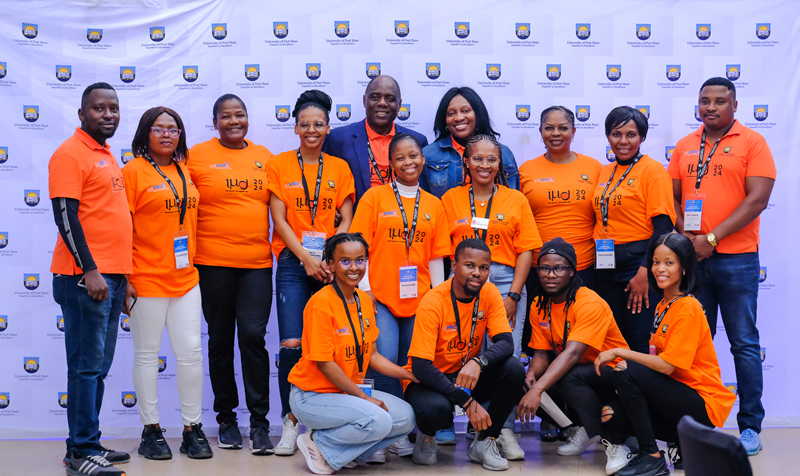On September 17, 2024, the University of Fort Hare in Alice became the vibrant hub of scientific exploration as it hosted the inaugural International Microorganism Day. The event, organised by the South African Medical Research Council Microbial Water Quality Monitoring Centre, aimed to enlighten grade 12 learners about the vital role microorganisms play in our lives and the environment.
Dr. Nolonwabo Nontongana, the Deputy Director of the Centre, opened the event with a sense of pride, noting that this was the first time that such a day was celebrated in South Africa. “Today marks a significant milestone in our understanding and appreciation of microorganisms,” she stated, setting the tone for a day filled with knowledge and discovery.
The SAMRC Vice President, Prof. Liezl Zühlke, warmly welcomed the attendees to the event. In her opening remarks, Prof. Zühlke congratulated the Grade 12 learners who had joined the event, encouraging them to explore the fascinating world of microorganisms and consider careers in Science, Technology, Engineering, and Mathematics (STEM). She emphasised the significance of microorganisms in addressing global health challenges and applauded Prof Okoh's efforts at advancing the mission of SAMRC. Prof. Zühlke's inspiring words set the tone for an engaging celebration featuring interactive exhibits, games, and activities showcasing the benefits of microorganisms and innovations in Microbiology.
The keynote address was delivered by the esteemed Prof. Anthony I Okoh, the Director of the SAMRC Microbial Water Quality Monitoring Centre. His presentation, titled “Unlocking the Microbial World,” captivated the audience of 58 top science learners selected from five local schools: Imingcangathelo, Jabavu, Nzululwazi, Phandulwazi, and Enkwenkwezini. Prof. Okoh emphasized the importance of microorganisms in various ecosystems and their essential roles in processes such as decomposition, nutrient cycling, and even human health.
As the morning unfolded, the learners engaged in a series of presentations from 9:30 am to 12:30 pm, where they absorbed knowledge about microbial diversity and its implications for water quality and environmental sustainability. The atmosphere buzzed with excitement and curiosity as the students eagerly participated in discussions and asked insightful questions.
In the afternoon, the event transitioned into a series of interactive activities designed to reinforce the morning’s lessons. The learners enjoyed board games, group experiments, and quizzes that challenged their understanding of microbiology in a fun and engaging manner. Laughter and camaraderie filled the gymnasium as students collaborated, competed, and learned from one another.
The event concluded with a sense of accomplishment and inspiration, leaving the young participants eager to explore the microbial world further. The day not only celebrated microorganisms but also ignited a passion for science among the learners, fostering a new generation of scientists who would carry the torch of knowledge into the future.
Reflecting on the success of the event, Dr. Nontongana remarked, “We have sown the seeds of curiosity today. It is our hope that these learners will continue to explore the wonders of microbiology and understand its significance in our lives.” The first International Microorganism Day was indeed a remarkable achievement, paving the way for future celebrations and a deeper appreciation of the unseen world that surrounds us.

